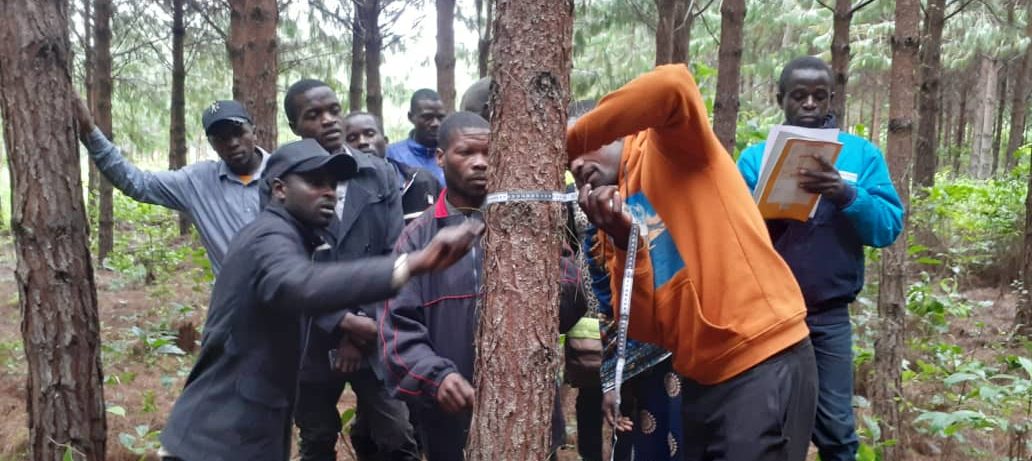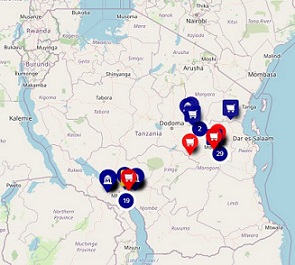Mtandao wa Vikundi vya Wakulim Tanzania – MVIWATA through a Climate Resilient Landscapes and Improved Livelihoods Program has so far implemented a direct training to more than 60 forest and farm producers in Kobi ward Njombe region. Forest and farm producers have so far received training on tree census, measuring forest farm size and training on market analysis of forest and farm products.
In partnership with Food and Agriculture Organization of the United Nations (FAO), MVIWATA is implementing a Climate Resilient Landscapes and Improved Livelihoods Program under the Forest and Farm Facility (FFF) which is a multi-donor funded project housed within the Forestry Department and implemented in partnership with the International Institute for Environment and Development (IIED), the International Union for Conservation of Nature (IUCN) and AgriCord.
The Forest and Farm Facility has now entered its second phase (2018-2022) with the goal of ensuring “climate resilient landscapes and improved livelihoods” among Forest and Farm Producer Organisations (FFPOs) including women, youth and Indigenous Peoples. Phase II of the FFF is ensuring that FFPOs are key players in reducing poverty and significant contributors for achieving the Sustainable Development Goals (SDGs) and Nationally Determined Contributions (NDCs) to fight climate change.
MVIWATA’s interventions under this program aims at strengthening the capacity of forest and farm producers to engagement in cross-sectorial policy and legal processes, increase the delivery of landscape-scale climate responses, in inclusive and sustainable economic opportunities, improved social and cultural services through direct financial support, technical assistance, peer-to-peer learning, and exchange visits, paying special attention to gender equality, youth engagement and indigenous peoples’ rights, working closely with governments.
The program also aims to contribute to realization of eleven Sustainable Development Goals (SDGs) and will therefore have a global impact. FFF is a catalytic programme of FAO for the implementation of the United Nations Decade of Family Farming (2019-2029).
MVIWATA with a support from FAO Tanzania will implement the programs’ activities in three regions of Njombe, Tabora and Rukwa.
It is estimated that more than 1.5 billion smallholder farmers around the world depend on forest landscapes for their food and livelihoods. Collectively the gross annual value of their production of food, fuel, timber and non-timber forest products is between US$0.8 and 1.5 trillion, making them the world’s largest private sector.
Forest and farm smallholder producers have a defining significance for the world’s poverty reduction, food sovereignty, forest management, biodiversity conservation, carbon sequestration and climate change adaptation. But enabling them to make a positive contribution requires investments in organisation and inclusive capacity development such that women and men, young and old can play their part.







